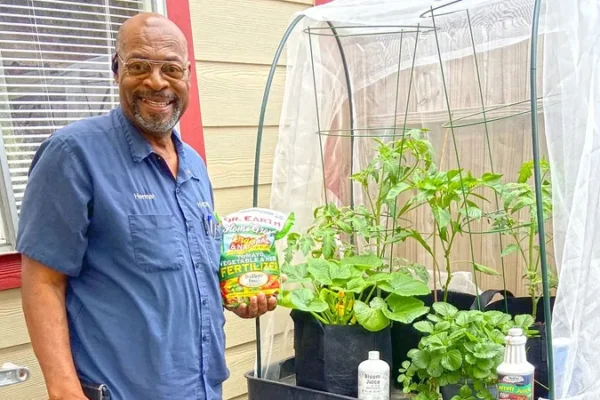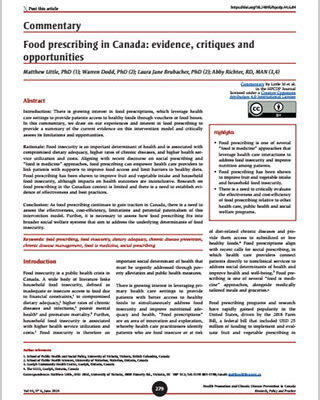Food insecurity (FI) is a growing health problem, worsening during the COVID-19 pandemic. Fresh food prescription programs (FFRx) have been shown to increase healthy eating and decrease FI, but few FFRx are community-informed, or theory based. Our FFRx was a delivery program developed to alleviate FI for older adults. It was implemented in an academic medical center and guided by the Capabilities, Opportunities, Motivations, and Behaviors and Theoretical Domains Framework. We tested impacts of the program on FI, Fruit and Vegetable (FV) intake, depression, and loneliness at six-month intervals. During the FFRx, 31 people completed surveys every six months. FI decreased by an average of 2.03 points (p = <.001) while FV intake increased from a mean of 2.8 servings per day to 2.9 servings per day (p = .53). Depression and loneliness scores stayed stable. Preliminary data from this FFRx program, a partnership between an academic medical center and community partners, had positive impacts on FI.
Read The Full Article at Journal of Nutrition in Gerontology and Geriatrics







